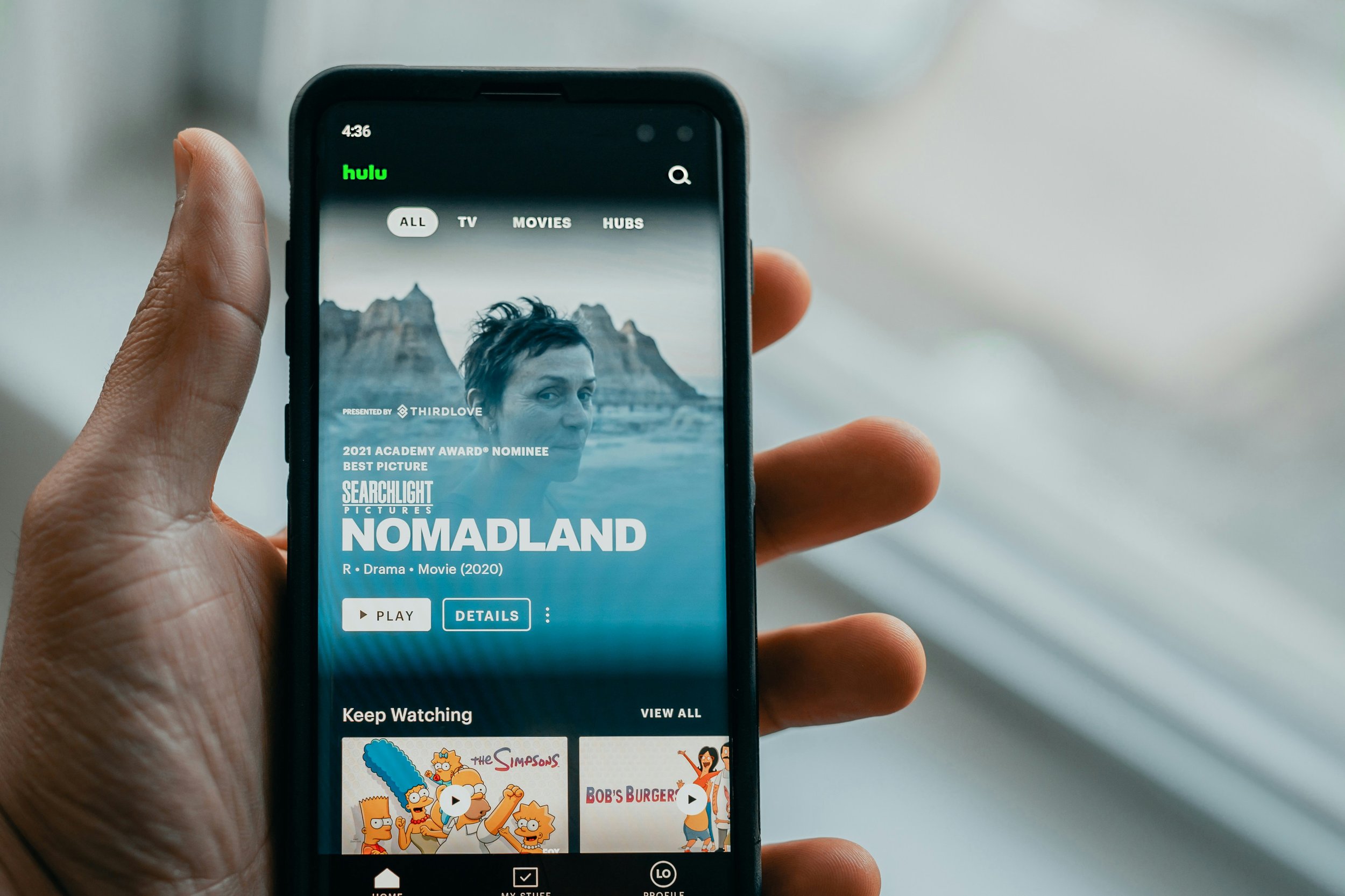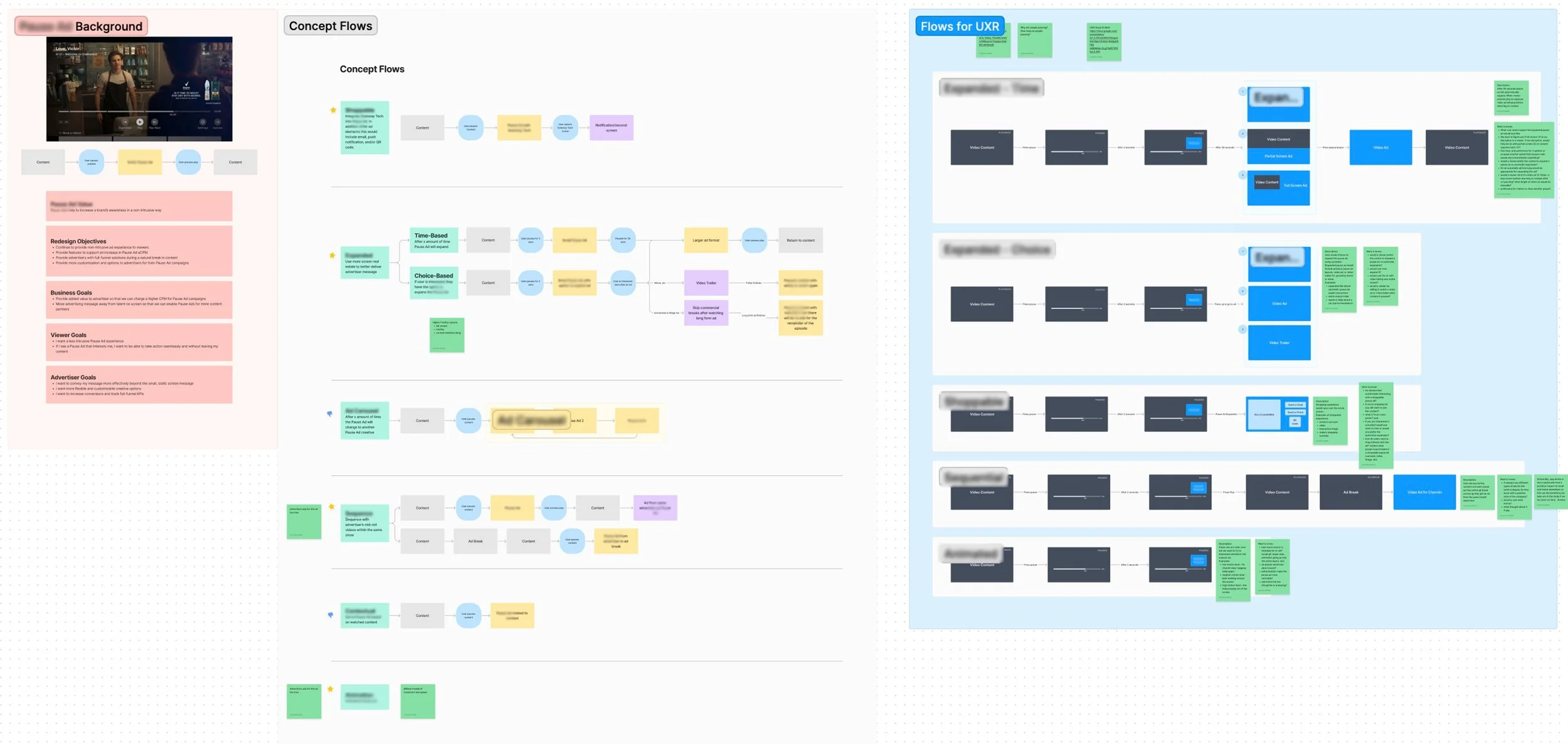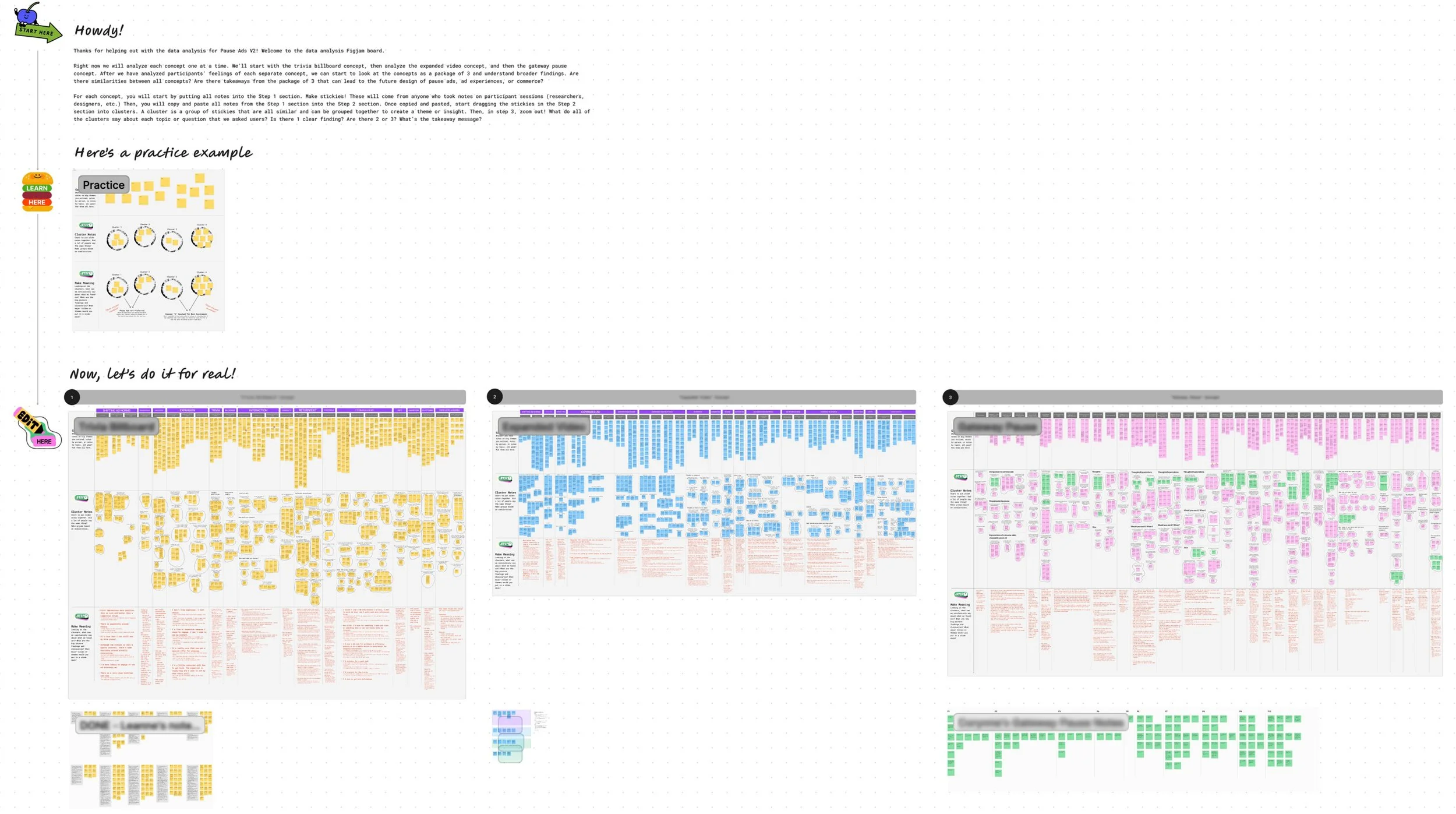Advertising Experiences Project
About the project: This project showcases how I proactively started a new working relationship with a product team through a design-thinking process, guided development through research/design, and helped deliver three different ad experience concepts shipping EOY 2024.
Impact: In collaboration with Design and Product, we were able to deliver three new Ad experiences that will be sold to advertising customers and most importantly, increase ARPU (Average Revenue per User).
Attracting An Ad Experience Team Hungry for A New Approach
I presented a Design-Thinking deck to a larger audience that I created for helping teams understand the process in a very digestible way, and how it can apply to their specific teams.
The Ad experience Product team was excited about this new process and wanted to work with my team to develop current and future roadmap initiatives.
Addressing our first challenge with Product & Design teams…
How I helped the product team decide on an addressable first direction:
Collaborated with Design and Product to determine which products would create the most immediate impact vs. development time.
Aggregated existing research to scope workload and bandwidth for either the research and/or design teams.
Align Product and Design on goals, multi-phased project roadmap, and outcomes for the project
The challenge to solve:
Inform a user-centered approach to designing the right pause ad solution for users while also considering the needs of our advertising partners and the business overall.
The Process (Project)
Multi-Phase Ad Concept Development & Exploration:
Phase 1 - Defining Ad Concepts
Project Background - Framing the problem
Conceptual Workflow Diagrams
Conceptual Wireframes
Moderated Scenario-Based Co-Design Sessions
Phase 2 - Refining Concepts
Mid-Fi Prototype exploration
Unmoderated interviews with Prototypes
Stakeholder Management:
Educating Product on the design and research process
Putting them at ease around the outcomes and direction of concepts based on research
Full research process transparency
Full collaboration throughout the entire design and research process
The Process (Team)
Collaboration with Design & Product:
It was important that our design partners were fully engulfed in the research process from the start. That being said, I directed my team to bring Design and Product into the process whenever possible. This was an exercise where the Design team were able to synthesize qualitative data with Research.
The positives of doing this:
Brings Design and Research closer together in cross-functional collaboration while building relationships.
Design is able to understand the Research process and how insights are created.
Design is able to move quicker during the iteration phases.
The Output
Results: This project created three drastic variations of a core concept that will increase engagement with users, provide better interactive data on the backend, while also providing exciting new product offerings to advertisers.
Concepts
Concept A
Concept B
Concept C
Product Requirements (PRD) & Success Metrics
Product requirements based on user needs/problems
OKR’s (Now, Next, Later) for current and future development
Design tenets to use as guide-rails for current and future ad work
The Concept C variation turned out to be extremely promising with users. This in-turn initiated an entire research and design program for the team to explore further.
Our Impact
The Product Experience
We created three different product variation experiences that will delight users while using the features we helped design.
A future expansion of one specific product variation that will create an entirely new revenue stream for the business.
User-first ad experiences based on research and great design that creates delight rather than friction.
Stakeholders
Created an entirely new process for how design and research work together throughout an end-to-end process; From blocky wireframes, to high fidelity prototypes.
Gained trust and influence with both Product and Design through a transparent design-thinking process.
Mentored both researchers and designers on how work more closely together in exchanged ideas and processes.





